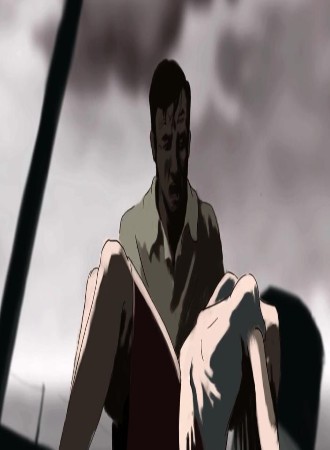
Waves of Memory 2014
Distributed by Ruth Diskin Films Ltd., P.O.Box 7153, Jerusalem, 91071, ISRAEL
Produced by Gad Aisen
Directed by Gad Aisen
DVD , color, 75 min., dialog mainly in Hebrew, with subtitles
College - General Adult
Jewish Holocaust
Date Entered: 07/30/2015
Reviewed by Sheila Intner, Professor Emerita, Graduate School of Library & Information Science, Simmons College GSLIS at Mt. Holyoke, South Hadley, MAGad Aisen uses considerable skill in producing, writing, and directing this interesting but flawed documentary drama, about a ship that sank off the coast of a Greek island carrying a cargo of nearly 800 Holocaust survivors to Israel during what became known as the Second Wave of Jewish immigration to Israel.
Three things make this interesting: 1- it documents the bungled voyage and unfortunate sinking of the Rafiah, a ship used by nascient Israeli forces, including members of the Palmach and the Mossad, to defy the British blockade and bring survivors to Israel; 2- it details two mysterious, conflicting stories about how a newborn Jewish baby aboard the ship was saved from certain death when the Rafiah went down; and, 3- it describes how, after the ship sank, a gifted Mossad agent named Avraham Lichovsky used his brilliant talent with radio equipment to inform his bosses, enabling them to contact the British authorities, who saved the stranded Jews from certain death. Although these elements make for compelling interest, the presentation is disjointed and hard to follow, and in many ways is confusing—even exasperating.
The Rafiah, bought by the Mossad with American money, aims to bring Jewish survivors to Palestine. Led by a Greek crew, it runs aground on a shoal on its way to Yugoslavia to pick up the refugees. After being freed from the shoal, the Greek captain turns it in to the authorities, but the Mossad agents take over and sail to their original destination, take the refugees aboard, and head for Haifa. Now they try to offload the original crew, but miss a rendezvous with the Greeks. Bad weather causes them to sail to Syrna, where the ship founders on the rocks and sinks. All but eight of the refugees scramble ashore, including the baby, but without food, water, or shelter, they suffer terribly. Radioman Lichovsky rescues the ship’s transmitter from the sunken ship, repairs it, and contacts his bosses. The British arrive and intern them, though many end up living in Israel.
The saved baby, Shlomo, now in his sixties, believes that Rafi, a fatherly figure, grabbed him from someone’s arms and tossed him ashore just before the doomed ship sank. Rafi says so, has mentored him, and remains close. But, contrary to his version, Aryeh, an artist who was also aboard the ship, claims that nothing of the sort happened. He draws a graphic account of the events at Syrna and says Rafi imagined saving Shlomo. The argument rages and we see a brief discussion among Shlomo, Rafi, and Aryeh, with a kibbutznik who might have been a second baby aboard the Rafiah who was also saved. They do not resolve the dilemma.
Overlaid on this complicated story are interviews with Avraham Lichovsky’s widow and invalid son in the U.S. Avraham has left a typed report of the Rafiah’s voyage, depicted in bits and pieces throughout the film by means of animation. Though initially successful, when his son is accidentally injured, Avraham devotes all his energies to him and dies penniless.
While it is well filmed and edited, the narrative skips about, mixing up the time periods, locations, and people involved. It can help modern viewers understand some of the basic issues concerning Jewish immigration to Palestine before Israel was established, but its focus on the human interest aspects (for example, Shlomo becoming a grandfather) serves to muddy the waters.